Unity C# Gamedev Specialization
Release date:2018
Author:Coursera
Skill level:Beginner
Language:English
Exercise files:Yes
This specialization is intended for beginning programmers who want to learn how to program Unity games using C#. The first course assumes no programming experience, and throughout the 5 courses in the specialization you’ll learn how to program in C# and how to use that C# knowledge to program Unity games. The C# and Unity material in the first 4 courses in the specialization is slightly more comprehensive than the content in the first 2 game programming courses at UCCS.
“Unity” is a trademark or registered trademark of Unity Technologies or its affiliates in the U.S. and elsewhere.
The courses in this specialization are independent works and are not sponsored by, authorized by, or affiliated with Unity Technologies or its affiliates
1. Introduction to C# Programming and Unity
This course is all about starting to learn how to develop video games using the C# programming language and the Unity game engine on Windows or Mac. Why use C# and Unity instead of some other language and game engine? Well, C# is a really good language for learning how to program and then programming professionally. Also, the Unity game engine is very popular with indie game developers; Unity games were downloaded 16,000,000,000 times in 2016! Finally, C# is one of the programming languages you can use in the Unity environment. This course doesn’t assume you have any previous programming experience. Don’t worry if you’ve never written code before; we’ll start at the very beginning and work our way up to building small games by the end of the course. Throughout the course you’ll learn core programming concepts that apply to lots of programming languages, including C#, and you’ll also learn how to apply those concepts when you develop games. Computer programming is really fun in general, and programming games is even better! Caution: Beginning (assuming no prior programming knowledge) is not the same as easy (not hard to do). Learning to program IS hard to do, especially since this course is essentially the first half of a freshman-level college course. Meeting the course challenges while you master the material will be rewarding to you, but doing that will require hard work and maybe even a few expletives along the way. Module 1: Write your first C# console application and Unity script and learn how we store data in our programs Module 2: Learn how we use classes and objects to implement our code Module 3: Learn the basics of Unity 2D games and discover how we make decisions in our code Module 4: Get and use player input in your Unity games Module 5: Complete final peer review and take “Final Exam” “Unity” is a trademark or registered trademark of Unity Technologies or its affiliates in the U.S. and elsewhere. This course is an independent work and is not sponsored by, authorized by, or affiliated with Unity Technologies or its affiliates
2. More C# Programming and Unity
This course is the second course in the specialization about learning how to develop video games using the C# programming language and the Unity game engine on Windows or Mac. Why use C# and Unity instead of some other language and game engine? Well, C# is a really good language for learning how to program and then programming professionally. Also, the Unity game engine is very popular with indie game developers; Unity games were downloaded 16,000,000,000 times in 2016! Finally, C# is one of the programming languages you can use in the Unity environment. This course assumes you have the prerequisite knowledge from the previous course in the specialization. You should make sure you have that knowledge, either by taking that previous course or from personal experience, before tackling this course. The required prerequisite knowledge is listed in the “Who this class is for” section below. Throughout this course you’ll continue building your foundational C# and Unity knowledge by exploring more C# and Unity topics and finishing the Unity game you started at the end of the previous course. The material in this and the previous course is essentially our first programming course for Game Design and Development majors at UCCS. Module 1: Learn how we can store lots of data in arrays and lists and use iteration (looping) to repeat actions in your code Module 2: Learn about abstraction and how we can use it to design and implement console application classes Module 3: Learn how we can use abstraction to design and implement Unity classes Module 4: Add text output (like score!) and sound effects to your Unity games Module 5: Complete final peer review “Unity” is a trademark or registered trademark of Unity Technologies or its affiliates in the U.S. and elsewhere. This course is an independent work and is not sponsored by, authorized by, or affiliated with Unity Technologies or its affiliates
3. Intermediate Object-Oriented Programming for Unity Games
This course is the third course in the specialization about learning how to develop video games using the C# programming language and the Unity game engine on Windows or Mac. Why use C# and Unity instead of some other language and game engine? Well, C# is a really good language for learning how to program and then programming professionally. Also, the Unity game engine is very popular with indie game developers; Unity games were downloaded 16,000,000,000 times in 2016! Finally, C# is one of the programming languages you can use in the Unity environment. This course assumes you have the prerequisite knowledge from the previous two courses in the specialization. You should make sure you have that knowledge, either by taking those previous courses or from personal experience, before tackling this course. The required prerequisite knowledge is listed in the “Who this class is for” section below. Throughout this course you’ll build on your foundational C# and Unity knowledge by developing more robust games with better object-oriented designs using file input and output, inheritance and polymorphism, and event handling. This course gives you even more tools to help you build great games with C# and Unity! Module 1: Start using files to implement your Unity games Module 2: Learn how inheritance and polymorphism help us write less code for our games Module 3: Implement event handling to make better object-oriented designs and add menus to your Unity games Module 4: Explore the complete implementation of a small Unity game Module 5: Complete final peer review “Unity” is a trademark or registered trademark of Unity Technologies or its affiliates in the U.S. and elsewhere. This course is an independent work and is not sponsored by, authorized by, or affiliated with Unity Technologies or its affiliates
4. Data Structures and Design Patterns for Game Developers
This course is the fourth course in the specialization about learning how to develop video games using the C# programming language and the Unity game engine on Windows or Mac. Why use C# and Unity instead of some other language and game engine? Well, C# is a really good language for learning how to program and then programming professionally. Also, the Unity game engine is very popular with indie game developers; Unity games were downloaded 16,000,000,000 times in 2016! Finally, C# is one of the programming languages you can use in the Unity environment. This course assumes you have the prerequisite knowledge from the previous three courses in the specialization. You should make sure you have that knowledge, either by taking those previous courses or from personal experience, before tackling this course. The required prerequisite knowledge is listed in the “Who this class is for” section below. Throughout this course you’ll build on your foundational C# and Unity knowledge by developing more robust games with better object-oriented designs using various data structures and design patterns. Data structures and design patterns are both general programming and software architecture topics that span all software, not just games. Although we’ll discuss these ideas in the game domain, they also apply if you’re writing a web app in ASP.NET, building a tool using WinForms, or any other software you decide to build. Module 1: Explore a Dynamic Array data structure and learn the basics of algorithm analysis Module 2: Learn about and use the common Linked List and Graph data structures Module 3: Learn about and use several additional data structures: Stacks, Queues, and Trees Module 4: Learn why design patterns are so useful and discover a number of design patterns useful in game development Module 5: Complete final peer review “Unity” is a trademark or registered trademark of Unity Technologies or its affiliates in the U.S. and elsewhere. This course is an independent work and is not sponsored by, authorized by, or affiliated with Unity Technologies or its affiliates
5. C# Programming for Unity Game Development Capstone Project
This is the final course in the C# Programming for Unity Game Development specialization. In this course, you’ll implement your own small game using C# and Unity from your initial idea to full implementation. You may already have an idea in mind, but if not, I’ll provide a number of suggested games for an 8-week course that assumes you’ve learned the material in the previous 4 courses in the specialization. Your game won’t be commercial-quality; that would be unreasonable after learning about C# programming and Unity game development for a few months. It takes my UCCS students 4 years of courses and experience to get to the point where they can build a commercial-quality game in the senior capstone project. On the other hand, building your own game is the culmination of the material you’ve learned in the previous courses in the specialization. That’s a great thing to do! Module 1: Develop a planning document for your game Module 2: Develop a prototype of your game Module 3: Implement the menu and difficulty systems in your game Module 4: Implement Iteration 1 of your game Module 5: Implement Iteration 2 of your game Module 6: Finish implementing your game for beta testing Module 7: Conduct beta testing and modify your game as appropriate Module 8: Complete final peer review “Unity” is a trademark or registered trademark of Unity Technologies or its affiliates in the U.S. and elsewhere. This course is an independent work and is not sponsored by, authorized by, or affiliated with Unity Technologies or its affiliates



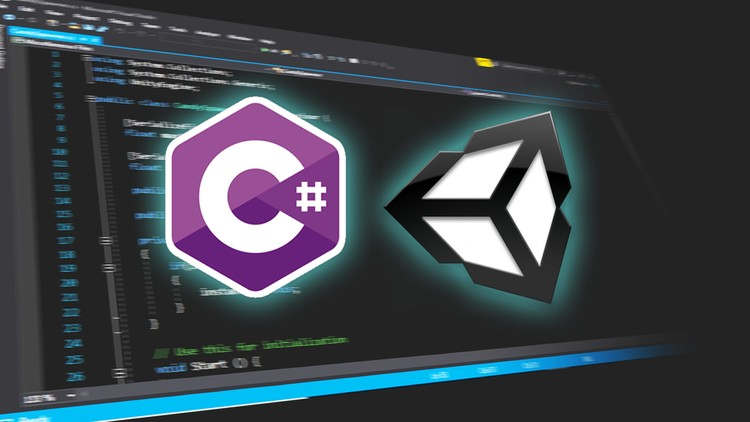
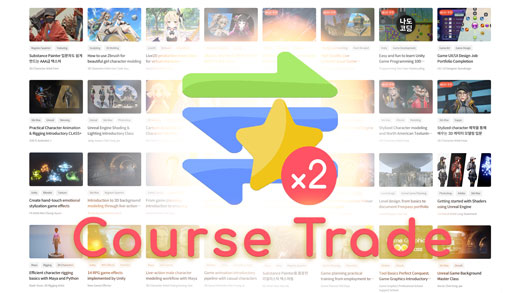
 Channel
Channel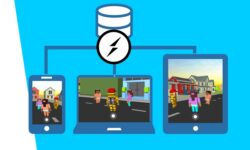
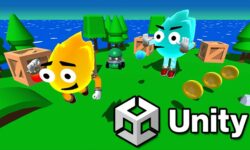

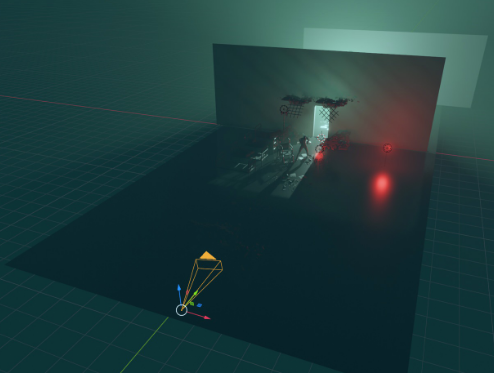



Please upload this course?
https://www.udemy.com/course/build-multiplayer-games-with-unity-and-photon-pun-2/
that one is missing, sorry
sir please upload the missing videos
Thanks ,
Can you upload The Ultimate Data Structures & Algorithms Course from (codewithmosh) ?
I’m not sure if your request is relevant to the website content.
Thanks for your work , i’ll appreciate a lot
not working
pleas can you fix it
what videos are you talking about? I’ve checked some and these are good.
Some of the videos are missing right? First c codes 03 video etc. Is there a workaround?
Can you upload Full Time Game Dev by Thomas Brush
https://www.fulltimegamedev.com/
Can you upload Full Time Game Dev by Thomas Brush
https://www.fulltimegamedev.com/